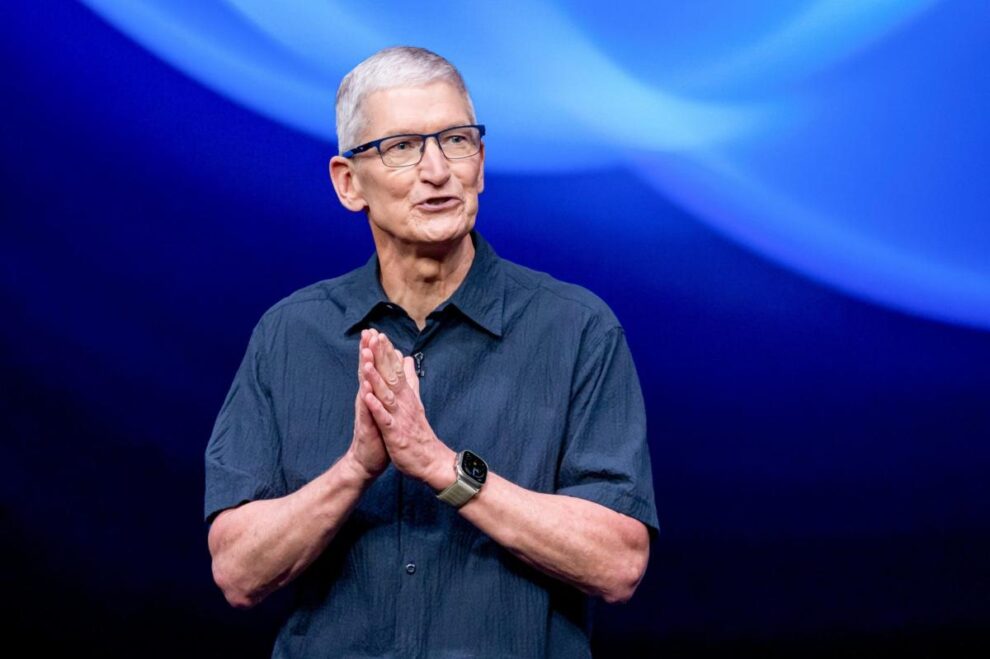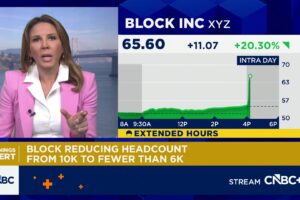
Warren Buffett once said it can pay “to be fearful when others are greedy and to be greedy only when others are fearful.”
Since the GenAI boom took hold last year, investors have hopped on the bandwagon of the Magnificent Seven—a movie-inspired moniker that refers to Alphabet, Amazon, Apple, Meta, Microsoft, Nvidia, and Tesla—and the group accounted for half the S&P 500’s total gains in 2023, according to a report from Morgan Stanley.
After a blistering start to 2024, however, many of these large-cap tech giants have fallen back down to Earth. Could it be time to buy the dip? Here are three members of the Magnificent Seven that Wall Street remains high on.
Apple
Speaking of Buffett, the Oracle of Omaha made plenty of headlines when the Berkshire Hathaway chairman sold half of its immense holding of Apple stock. It’s worth noting, however, that the iPhone maker remains Berkshire’s biggest equity holding overall.
Some believe the stock, which is up 20% year to date, is overvalued. Angelo Zino, a senior vice president and tech equity analyst at CFRA Research, understands why Monday’s unveiling of the iPhone 16—the first with significant GenAI features—didn’t spark a major reaction from investors. Nonetheless, he remains excited about the future of Apple’s wearables as new healthcare features are added, from sleep apnea detection on the Apple Watch to “clinical grade” hearing aids with the new AirPods Pro.
“Some of this wearable stuff is kind of being not talked about enough,” Zino said, “maybe because the AI stuff is taking all the limelight.”
The stock closed at $222.50 Friday, with the Street’s consensus price target sitting just short of $250.
Nvidia
Nvidia accounted for roughly 30% of the S&P 500’s total returns during the first half the year and is up almost 150% year to date. Analysts have made clear investors should not expect the chip designer’s shares to continue appreciating at the same pace, but the recent sell-off may have presented an attractive entry point.
Nvidia’s breakneck growth will inevitably slow, but demand for its GPUs remains insatiable. The stock popped over 13% this week as CEO Jensen Huang spoke Wednesday at a Goldman Sachs conference about juggling customers’ needs, underlining why the company is still, as Zino put it, the “center of the universe” when it comes to AI.
It should come as a surprise to no one, he said, that the tech giants, as well as smaller customers, hungrily await Nvidia’s next-generation Blackwell chips. That may be one reason the stock, which closed just above $119 on Friday, has a consensus price target topping $153.
Alphabet
However, the most underweighted mega-cap name, Zino said, is likely Alphabet, with the Google parent’s shares down 5% this month and up only 13.5% year to date, trailing the broader market.
A federal judge recently ruled Google had illegally monopolized the search market, which Bernstein analysts said could unleash future litigation that could cost the company over $100 billion. The Justice Department is even reportedly considering an effort to break up the business.
In recent notes to inventors, however, Zino said he believes those concerns are already discounted in the stock price. Investors are under-appreciating Google’s AI monetization opportunities, he said, as well as assets like Waymo, Google’s autonomous driving technology.
On Friday, Uber announced it will dispatch Waymo’s robotaxis in Austin and Atlanta by early 2025, expanding the footprint of Google’s self-driving cars beyond California and Arizona. Google shares closed above the $158 mark Friday, still below its consensus price target of roughly $204.
This story was originally featured on Fortune.com










